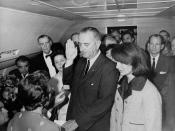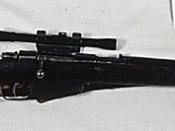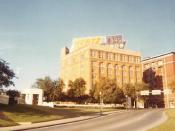The assassination of President John F. Kennedy puzzles and disturbs the American public today as much as it did in 1963 (Zirbel 1). Of the millions of Americans now living who can recall the events that began on November 22, 1963, most remember exactly what they were doing when they heard about the shooting of the President. It was that kind of moment - painful, terrifying and beyond rationality (Kinney 48). With its powerful, energetic, young president gone, the country was bound together in mourning. Though many different theories on his assassination exist, some seem to make more sense than others, and I intend to explore thoroughly what I consider to be the most likely of these.
Though most people remember the impact of his death on their lives, many have only a vague memory of the events that transpired during the course of that weekend. Presidents Kennedy's trip had been under consideration for nearly one year.
John Connally, the Governor of Texas at the time, suggested the motorcade through Dallas, and this was unanimously settled upon. It was initially purposed that the trip be on year earlier, in 1962, on Johnson's birthday, August 27 (Zirbel 5). After further debate it was decided that the trip through Dallas would be made on November 22, 1963. On October 4, 1963 Connally traveled to the White House to personally discuss more details of the trip and to confirm the plans with the President. Kennedy's aides wanted him to cancel the trip entirely, and at this point, even Kennedy showed concern, but eventually agreed to go.
It was the same day of Connally's Washington visit, the Lee Harvey Oswald returned to Dallas from Mexico, disregarding warnings from friends that he had no apparent job opportunities, and no prospects there. Some time later, Oswald...


